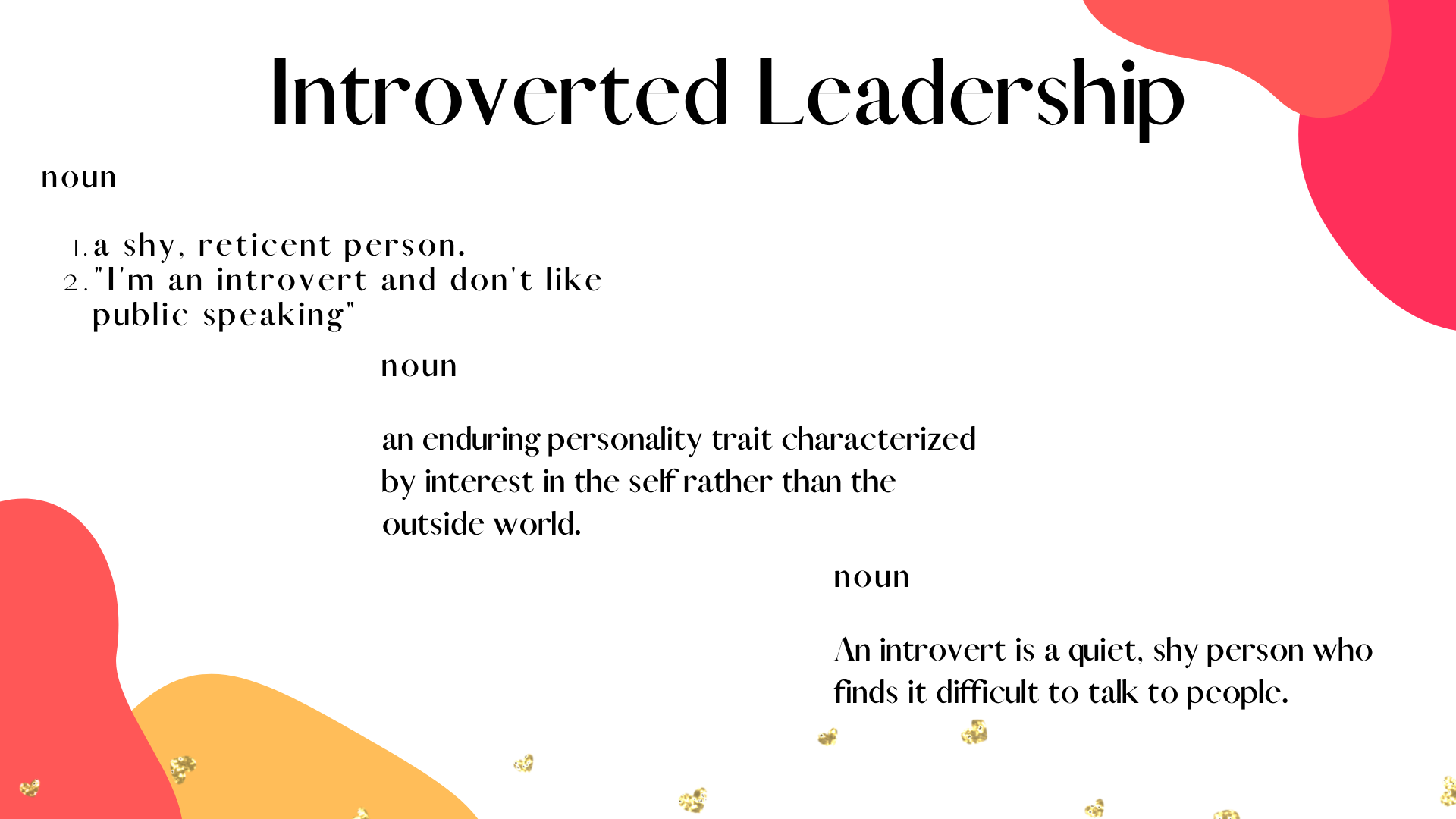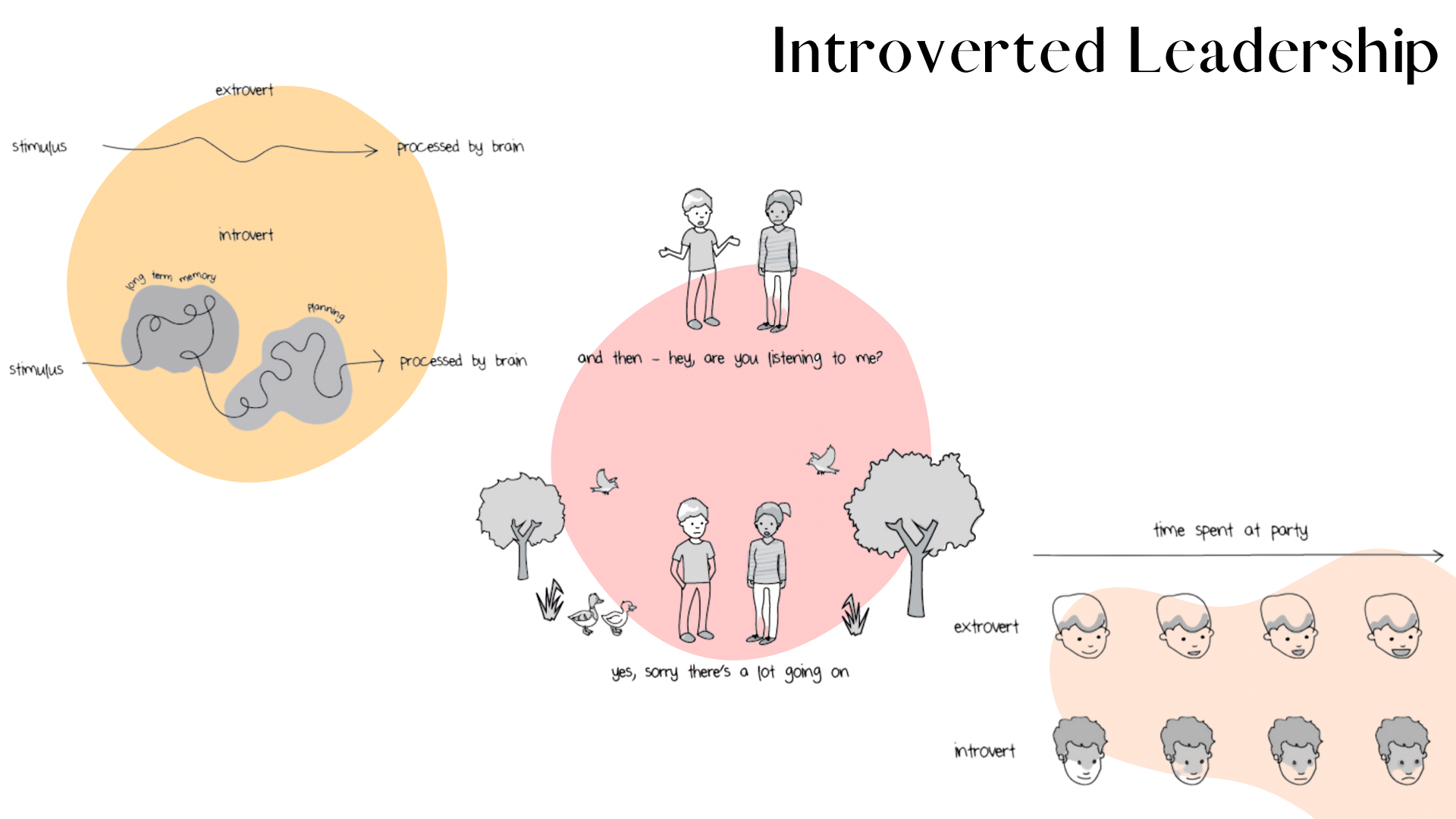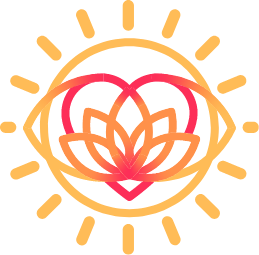Introverted Leadership

What do you think of these dictionary definitions of what it means to be introverted? Finding a sufficiently reasonable definition for what introversion is a challenge in itself. No wonder there is a stigma around being introverted with all these negative and demeaning definitions!
In many societies, there is a very narrow view of this personality type. This leads to assumptions about what introverts are capable of; these limiting definitions can encourage negative perceptions about an introvert’s competence and confidence as a leader, particularly in a world which is more often geared up towards more extroverted personality types.
Often, there’s an emphasis on ‘overcoming’ introversion and the need to learn skills to be more extroverted in order to survive in a forward-facing environment. I strongly disagree with this, and am fascinated by the research around introversion and on the narratives of those who, like me, own their introversion and are able to thrive authentically in leadership roles.
Unlike the definitions above, which focus on personality traits (shy, quiet etc) I believe that whether you're an introvert or an extrovert all depends on how you process and interact in the world around you; where you naturally derive your energy from and where you prefer to spend your energy.
We know that the brains of the two personality types, introverts and extroverts, work a little differently from each other. Introvert brains react differently to dopamine than extrovert brains do. (Dopamine is a chemical that turns on the reward- and pleasure-seeking part of your brain.) Introverts and extroverts have the same amount of the chemical, but extrovert brains get an excited buzz from their reward center. Introverts, on the other hand, tend to just feel run-down by it.
Also, introverts have a longer neural pathway for processing stimuli. In other words, it’s more complicated for introverts to process interactions and events, as we attending to personal thoughts and feelings at the same time.Introverts process everything in their surroundings and pay attention to all the sensory details in the environment, not just the people. This can mean that introverts are more easily over-stimulated.

As well as being introverted, I’m also what’s classed as a hyper sensitive person, which means that strong smells, bright lights, loud sounds can affect (ok, irritate) me in a way that most other people wouldn’t even notice. Not all introverts are sensitive in this way, but it’s worth noting that many are!
So, what does this tell us?
It’s likely that introverts may become energetically depleted from some of the more forward-facing aspects of being a leader, for example, conferences, public speaking and networking.
Now, this isn’t to say that introverts aren’t good at these aspects of leadership. Not at all. It’s telling us that introverts may need alternative environments to thrive in, and that there needs to be carefully planned prep and decompression time in their working day in order to process, lead well, feel well and generally work to the best of their ability. A consideration for the working environment, frequency of outward facing events, and levels of noise and interaction with others should come into consideration.
I thrive on the more intimate side of leadership; the relationships, the quality of the processes, products and interactions, the connection, the community communication. That’s not to say I’m not good at the forward-facing stuff though, because I am! I deliver workshops, peer support and even keynotes. I’m increasingly more confident with public speaking and I’m rooted in being my authentic self when I do. I don’t pretend to be someone else who is more extroverted (a common strategy employed by many introverts - becoming an alter-ego in order to appear more confident). Being introverted doesn’t hold me back, but it does mean I need to have a high level of self-awareness, awareness of my environment and the confidence to articulate any boundaries, expectations and sometimes support which I need in order to thrive, as opposed to just surviving the events.
Here are three questions to consider if you are an introverted leader, or are working with introverted leaders.
How can we ensure introverted leaders thrive?
Consider alternative ways to collate thoughts and ideas from introverts. Give them time to process. Don’t rush them, put them on the spot, or expect them to answer immediately if you want meaningful responses.
Don’t expect introverts to thrive if you’re asking them to pitch and present when there are alternative ways of communicating. Expecting people to perform in a way that doesn’t suit them or allow them to thrive isn’t going to get the best of out of them
How can we show up as authentic, introverted leaders?
Recognise your strengths in leadership. Consider how you can best utilise those skills and abilities to serve others/your community. Don’t feel pressured: own your authenticity.
Plan in prep time and down-time leading up to and following energy depleting events. Ensure the time is scheduled into your diary.
Be confident in articulating what it is that you need to the people that you’re working with. If it doesn’t work for you, say so, and work to find an alternative.
Are the systems and environments that we work in inclusive for introverted leaders?
Processing additional sensory stimuli can deplete your energy levels rapidly. If you have an open plan office where you can constantly hear your colleagues, ensure you take regular breaks.
Consider wearing noise reducing ear plugs to help with focus (I highly recommend Loops.)
If you have an open door culture, ensure you have boundaries in place to ensure that you are not constantly interrupted when you’re in the flow of working.
Wellbeing Series: Switching Off
You need to learn to switch off!
Great advice right! And if it was that easy, we’d just flick a switch off in our minds every time we walked out of the office at the end of the day.
The reality is, its really bloody hard to ‘just switch off.’ Our minds are full of unfinished business; to do lists, conversations, actions arising form meetings etc and before the day is done, we are already thinking about what we need to tackle the next day.
Often, we underestimate the emotional impact of our work on our life outside of work.
Here’s a beautiful activity to help you begin to release your mind from your working day so that you can be more intentional about letting go of of what’s been and being more present in your evenings. Give it a try, you’ll only need a pen, paper and a timer on your mobile phone.
Gift yourself with 15 minutes before you intend to leave your workplace. Ensure you’re somewhere where you won’t be interrupted.
Sit with your pen and paper and set your phone timer for ten minutes.
Use a simple sentence starter for your writing such as ‘I am’ or ‘I feel’.
Start writing… get out everything that is going round and round in your mind and weighing heavy on your heart.. Don’t stop writing.. let it come.. let it flow … with no concern for spelling, grammar, handwriting… just keep going. And going. It doesn’t matter what comes out, this is for your eyes only. Let is be emotional, venting, angry, sweary…. Whatever it needs to be. Keep going until the timer stops.
Now, take a deep breath. And another, and another.
Set your timer for a further 5 minutes.
Re-read your writing with a rational brain now. What have you written that is of real concern? What can you let go of? What can wait? Can you label any sentences with the emotions attached to them?
Writing a stream of consciousness allows us to free up more space in our mind, and be more intentional about letting go and switching off each day. By getting those thoughts out of your head and onto paper, you’re doing something intentional and tangible to release and process the emotional baggage (any guilt, fear, resentment, anxiety, inner criticism) built up during the day, to help you switch off and bring you more peace.
Better still, try screwing up the paper and binning it before you leave work. It’s done, dusted, and left behind.
Wellbeing Series: Energetic boundaries
Here’s a reframe for you. Start thinking of tasks and experiences in terms of energy instead of time. If you think about the tasks you do and the interactions you have in terms of energy, you start to think more realistically about what you’ve got to give to that situation. The weight of the emotional energy you carry building up to, and coming down from a challenging task needs to be considered.
Here’s an example. If you think about the time that it takes to hold a transparent conversation with a team member (and note, I‘ve used the term transparent conversation as opposed to difficult/fierce - intentional vocabulary) you may be fooled into thinking about the length of time that conversation will take to hold. But the truth is, you’ll spend a lot of your energy before hand thinking about that conversation; imagining it, making assumptions about it, worrying about it, practicing it… whatever it is that you do in the lead up to that conversation. And what about the energy you spend after the conversation? Analysing it, overthinking it, actions that may arise from it, retelling it to others… We don’t always allow ourselves time for that, but it does take up time. It takes up energy.
When you think in terms of energy, you realise the real cost of the task and you can be more intentional about how you prepare and recover from it.
In every interaction you have, you commit yourself to an energetic exchange with another person and you open yourself up to the unknown consequences of those interactions.
If you’re aware of this commitment, you can consider whether you have the energy and capacity for the connection. Sometimes we do. And sometimes, we need to recognise that we may be depleted with little to offer. Knowing your own energetic boundaries and upholding them will serve you well.
